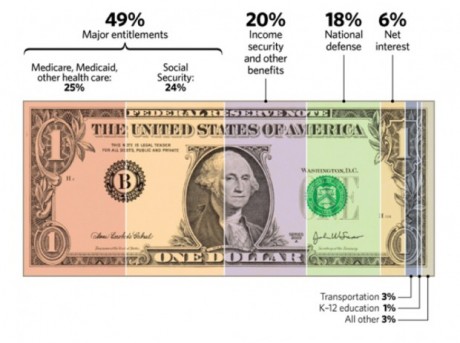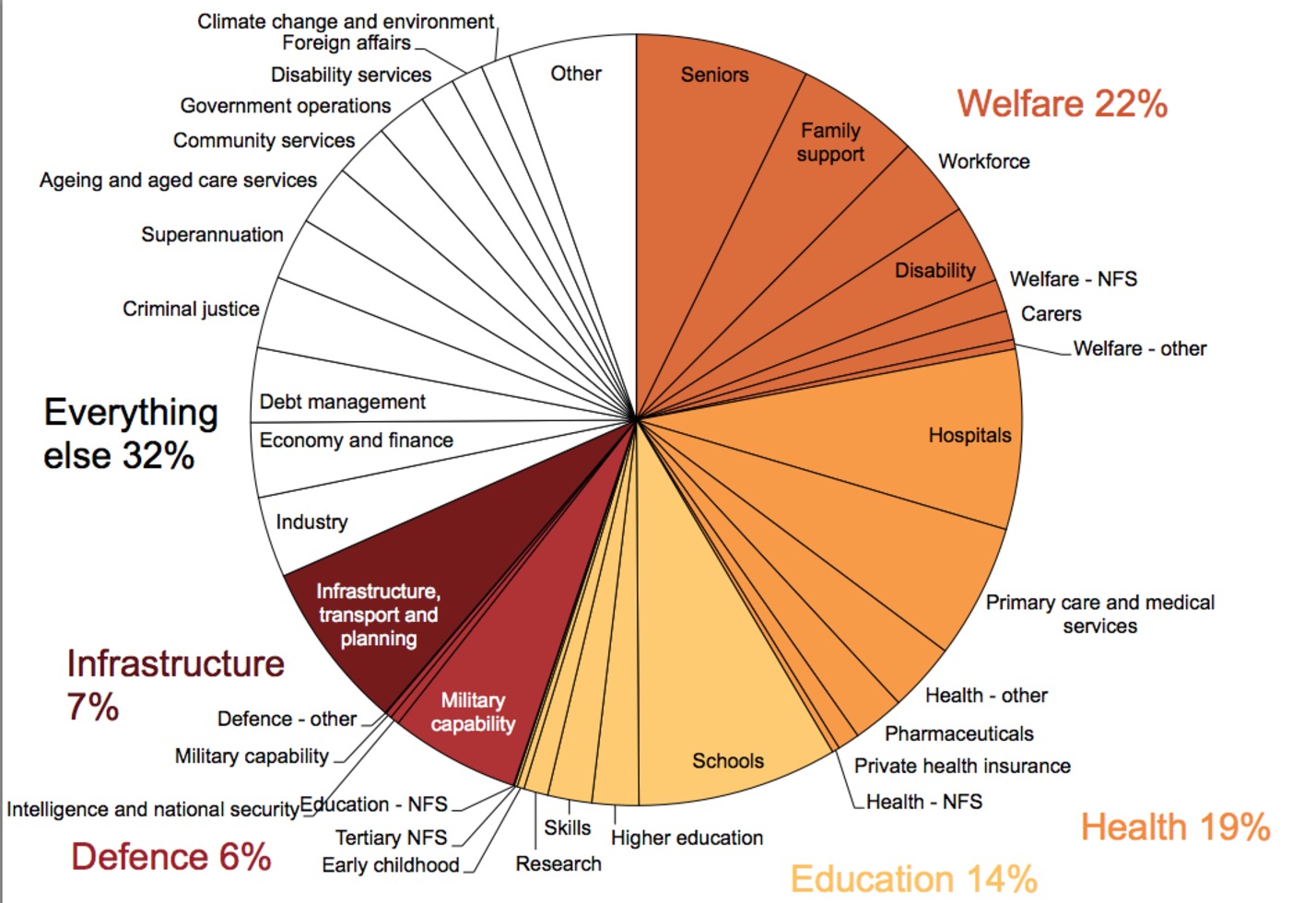- Banned
- #1
Hello friends,
You might have heard that our government today announced that we as a country will be spending at least twelve billion dollars to procure a few dozen fighter jets from the US military industrial complex. You can find bigfooty discussion on the particulars of the jets and the deal here.
It got me to thinking about an article I read in Vice the other day. Here is a snippet:
Now things aren't quite as dire here in Australia, as our defence budget isn't nearly as large as America's (in relative or absolute terms, see these charts) and our population is not nearly as impoverished as theirs is. Still, the reality is that our government indirectly supports the US war machine through defense contracts like the one announced today, and directly supports it whenever the American establishment decides to invade and pillage another country (see Vietnam, Afghanistan, Iraq). If there is a moral case to be made against paying taxes to a war machine, it is as applicable here as it is over there, even if the magnitudes of support differ.
The article also makes the point that large companies like google use legal tax avoidance strategies to pay little to no tax, not only in the US but in Australia as well. If you support multi-billion dollar corporations paying little to no tax in this country, why wouldn't you support your neighbour doing likewise? Especially if they do it legally by, say, working as little as possible and not going over the tax-free threshold? Or, heaven forbid, removing themselves from the workforce and living off welfare cheques?
I'm keen to get some different perspectives on this one. As always, I politely ask that those who cannot comment without name-calling/finger-pointing/mouth-frothing abstain from posting in this thread.
Over to you, bigfooty.
You might have heard that our government today announced that we as a country will be spending at least twelve billion dollars to procure a few dozen fighter jets from the US military industrial complex. You can find bigfooty discussion on the particulars of the jets and the deal here.
It got me to thinking about an article I read in Vice the other day. Here is a snippet:
http://www.vice.com/en_ca/read/dont-pay-your-taxesRefusing to give your money to a government that can literally print money might not change things in the short term. But war tax resisters, as people who refuse to pay federal income taxes as a form of protest are known, have decided they have no choice in the matter: They can’t in good conscience financially support a system that spends billions of dollars on machines of death while millions of people go hungry, and they don't believe a politician's failure to act takes away their own responsibility to do whatever they can.
Now things aren't quite as dire here in Australia, as our defence budget isn't nearly as large as America's (in relative or absolute terms, see these charts) and our population is not nearly as impoverished as theirs is. Still, the reality is that our government indirectly supports the US war machine through defense contracts like the one announced today, and directly supports it whenever the American establishment decides to invade and pillage another country (see Vietnam, Afghanistan, Iraq). If there is a moral case to be made against paying taxes to a war machine, it is as applicable here as it is over there, even if the magnitudes of support differ.
The article also makes the point that large companies like google use legal tax avoidance strategies to pay little to no tax, not only in the US but in Australia as well. If you support multi-billion dollar corporations paying little to no tax in this country, why wouldn't you support your neighbour doing likewise? Especially if they do it legally by, say, working as little as possible and not going over the tax-free threshold? Or, heaven forbid, removing themselves from the workforce and living off welfare cheques?
I'm keen to get some different perspectives on this one. As always, I politely ask that those who cannot comment without name-calling/finger-pointing/mouth-frothing abstain from posting in this thread.
Over to you, bigfooty.
Last edited:






